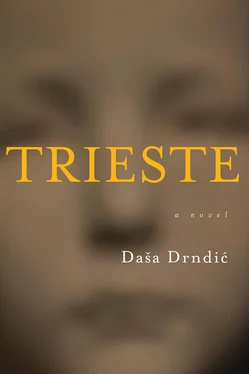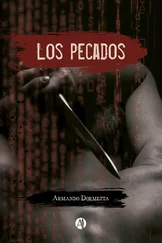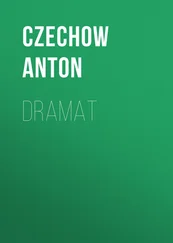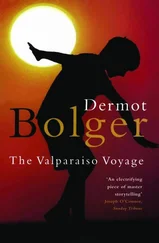Haya’s father, Florian Tedeschi, comes from a wealthy and fully assimilated Jewish family, not like Haya’s mother, Ada, who comes from a poor and altogether unassimilated Jewish family. Among Florian’s ancestors there are experts on the Talmud, financiers, chemists, glass-cutters, sculptors, failed students, musicians, seafarers, collectors, anti-fascists and, fascists. Some of them are buried in cemeteries all over Italy, Catholic and Jewish cemeteries, while the bones of others were swept up into dancing clouds, dropping black pellets laden with grey dust, as fine as grimy confectioners’ sugar. Some are here in Goriza, though not in Gorizia, but on the other side in Gorica, in a valley that isn’t much of a valley, in a valley meant to be full of roses, and Haya Tedeschi doesn’t remember any roses in that valley, because she hadn’t buried any of her own there, because her mother said to her, it was in a dream but she did say to her, bury me in the Valley of Roses, in Valdirose, because Haya misplaced her mother Ada in death, just as she had lost her grandmother Marisa, whom she never met, what else could she do, she was young and there was a war on, besides, that’s a Jewish cemetery with many small upright stones, by now old and aslant, chilled under damp moss like the amputated limbs of a body long since dead. And her dead, Haya’s dead on her father’s side, have not been buried in such cemeteries, Jewish cemeteries, for a long time, a hundred years or so. Haya Tedeschi knows that in Gorica, in Nova Gorica, a man named Wilhelm Tedeschi who died in 1891 was laid to rest. Born in Mannheim in 1837, he was a sculptor who gave painting lessons in Piran, Trieste and later Gorizia, yes, Gorizia, and before that in Pula, where his bust of Admiral Bourguignon may still be standing. In that family of Haya’s, on Florian’s side there are musicians and iron-casters, too, thank goodness, who create compositions of some sort for listening and viewing which are presumably meant to express beauty, though Haya doesn’t understand of what kind. All trace, apparently, has been lost of those composers and the casters, too. So, while she waits in the old building at Via Aprica 47, while she shuffles through the cards of all those lives, lives that are sliding through her fingers as if she were playing solitaire, Haya shakes her head every so often and says, We are a family with no traces .
In 1922 Claudio Magris returns his protagonist Enrico Mreule, a professor of classical philology, from Patagonia to Gorizia. The K.u.K. Staatsgymnasium has been renamed the Liceo Vittorio Emanuele III. Professor Schubert-Soldern (whom Ada Baar also remembers) has left by then. He is in Austria with no nationality of any kind and is undecided about what to choose, after having lost two monarchies, now that Gorizia has become Italian and his native Prague is part of Czechoslovakia. Just possibly he is not discontent with life in the draughty vacuum created by the cyclones and anticyclones of history. Enrico arrives, others depart.
On 30 October, Fascism officially takes its seat on the throne.
At the Vittorio Emanuele III Gymnasium, Italian is taught by Nerina Slataper with whom Ada Baar begins going out for sweets to the pastry shop on Via Municipio every Wednesday evening after she shuts the stationery shop. That is when Nerina tells Ada of her brother Scipio, who died near here, at Podgora, on 3 December, 1915, it seems so long ago, but it’s as if it were yesterday, Nerina says, when an enemy Croat shot him with a fragmentation bullet from a distance of only a few metres, when the bullet plunged into his throat, blew him to pieces and killed him instantaneously; then she gives Ada Scipio’s slender volume Il mio Carso , published a few years earlier, which Ada reads immediately and the next Wednesday tells Nerina that war has many truths, or perhaps no truths at all . Nerina tells her how she and her friends Bianca Stuparich, Maria Schiller and Lucilla Luzzatto spent a full three years, and the war was raging, she says, my brothers were at the front, Guido on one hill, Scipio on another, she says, they called us the “floral foursome”, she says, recalling how in their Trieste house at Via Fabio Severo 45 (I’ll take you there one day to show you, she says), how they spent three years sewing a tricolour, and how later, when the war was over, when the victory of the 39th Battalion and the 11th Regiment was being celebrated on 1 November, 1918, they had gone into the street and waved their flag and how the flag had billowed and how they had given it to the Bersaglieri.
Enrico Mreule says — or is it Claudio Magris? Haya is no longer sure, time is melting in her mind like chocolate— someone says that Monsignore Fogar, their religious teacher and now the Bishop of Trieste, is doing as much as he can to protect Slavs from Fascist oppression and violence, but that the Slavs retreat behind an impenetrable wall, and he says that a Ceccutti, the only other lay teacher among the cassocks, is furious at the squadristi, who also gave his cousin the castor-oil treatment, and says that they who are furnishing the squadristi with money without dirtying their own hands, the big estate owners or top civil servants, are far worse than the squadristi themselves.
Gorizia is in a new phase of its coming of age. Who can say how many phases there have been since its beginnings? It is baulking and petulant, caught up in rebellion against its parents, who leave it, return, then leave it again. Different lives are taking tiny ballet steps (petits pas ) in Gorizia. Some trip and stumble, cave in. For instance, the life of Enrico Mreule who walks around barefoot, like a sort of Christ figure, in order to buy off his destiny, or with an open umbrella, to shield himself from both his destiny and Gorizia, from its caprice with light and dark. Other lives drip. They make notches and grooves, the edges of which they erode and undermine. They make scars which gape into wounds and then heal over again. Yet other lives lie down, arms and legs spread wide, and let themselves be washed by the rains from the nearby mountains, they go back into the Soča.
Florian Tedeschi tells Ada Baar his brief history. He arranges and sets out his brief history, making space for the future, which will become Haya’s past, which will be lost, which now, eighty-three years later, she searches for, arranges, orders, catalogues, this here, that there, something into the rubbish, something on to the desk by the window, to shine like a tiny light. Florian tells his story, and Haya is already wiggling in Ada’s belly. Florian speaks about how his father Paolo Tedeschi marries Emilia Finzi, daughter to Emma Teglio and Constantin Finzi, all of them from the most prestigious Italian Jewish families. Some are annihilated and others are not. Some convert, others do not. Later, books are written about them and films are made, and Haya watches the films after all the horrors have supposedly passed. She watches, and then again she says, There was a war on, what else could I do? The Teglio family have an entire fishing empire today stretching across several continents, which were conquered, thank goodness, without war, circumventing war, despite war, thanks (?) to war. Florian has had word from time to time of Elsa Finzi, *his aunt, though he has never met her. She is always winging around the world in the company of remarkable women, particularly an Englishwoman named Sylvia Pankhurst and a German woman named Rosa Luxemburg, who also travels from one country to the next, and Elsa doesn’t ask after him to see how things are going in the wasteland of Gorizia where he hasn’t even adequate pocket money, let alone the wherewithal to start a family. Furthermore, Elsa Finzi is always up in arms about one thing or another, fighting for some kind of so-called equality for everyone, and it bothers him that she is alive while her sister, his mother Emilia, is not.
Читать дальше












